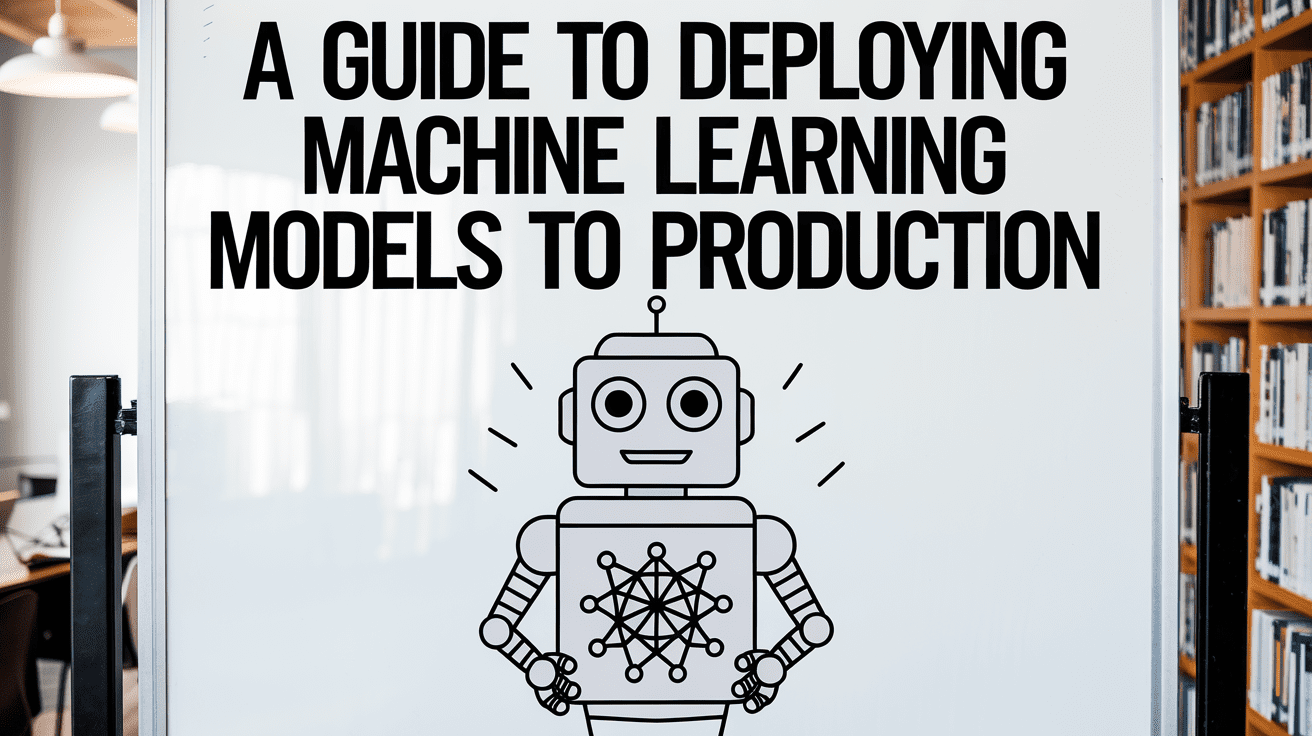How Can Payable AI Models Transform Businesses in the AI Era?
In today’s rapidly evolving AI landscape, businesses are continually seeking innovative ways to stay competitive and drive growth. Payable AI models offer a transformative approach by providing organizations with on-demand access to advanced artificial intelligence capabilities, without the need for large upfront investments or extensive technical infrastructure. These models enable businesses to scale their AI usage based on specific needs, making it easier to adopt cutting-edge technologies that enhance decision-making, automate processes, and personalize customer experiences From improving operational efficiency to creating tailored customer solutions, these models are becoming essential tools for businesses looking to remain agile and competitive in a rapidly changing digital environment. In this article, we will explore how payable AI models are driving business transformation and why they are becoming a strategic asset for organizations across industries. What Are Payable AI Models? Payable AI models refer to artificial intelligence solutions that require businesses to pay for access, usage, or subscription-based models to leverage their capabilities. These models offer a range of functionalities, including machine learning (ML), natural language processing (NLP), and predictive analytics, empowering companies to harness the power of AI without building complex infrastructures from scratch. Key Features of Payable AI Models Scalability: Businesses can scale AI usage based on their needs, ensuring cost-effectiveness. Customization: Many payable AI platforms allow customization to align with specific business requirements. Integration Capabilities: Seamless integration with existing business systems and software. Continuous Updates: Regular improvements and updates ensure models stay relevant and efficient. Benefits of Payable AI Models for Businesses The adoption of payable AI models brings numerous advantages that help businesses stay ahead in a competitive marketplace. 1. Cost-Efficiency and Accessibility Investing in payable AI models eliminates the need for costly in-house AI development. Businesses can access sophisticated AI tools without the need for extensive resources, making AI technology accessible even to small and medium-sized enterprises (SMEs). 2. Enhanced Decision-Making With AI-powered insights and data-driven analytics, businesses can make informed decisions that drive growth and efficiency. Payable AI models offer real-time analysis, helping companies identify trends, predict market changes, and respond proactively. 3. Improved Customer Experience From chatbots to personalized recommendations, payable AI models enhance customer interactions by providing timely and relevant solutions. Businesses can deliver a tailored experience, boosting customer satisfaction and loyalty. Use Cases of Payable AI Models in Different Industries Various sectors are benefiting from the integration of payable AI models, driving innovation and operational efficiency. 1. E-commerce and Retail Personalized Recommendations: AI algorithms analyze customer behavior to offer tailored product recommendations. Inventory Management: Predictive analytics optimize inventory levels, reducing overstock and stockouts. Chatbots and Virtual Assistants: Enhancing customer support with 24/7 automated responses. 2. Healthcare Diagnostic Tools: AI-powered models assist in early disease detection and diagnosis. Predictive Analytics: Identifying potential health risks based on patient data. Administrative Automation: Streamlining paperwork and appointment scheduling. 3. Finance and Banking Fraud Detection: Identifying suspicious transactions in real-time. Robo-Advisors: Offering automated financial advice and investment planning. Credit Risk Assessment: Evaluating creditworthiness with AI-driven analysis. Best Practices for Adopting Payable AI Models To maximize the benefits of AI adoption, businesses should follow these best practices: Define Clear Objectives: Set specific goals for AI implementation to align with business priorities. Choose the Right AI Provider: Evaluate providers based on reliability, scalability, and support. Monitor Performance: Regularly assess AI model performance and make necessary adjustments. Ensure Compliance: Adhere to legal and ethical standards when using AI solutions. Conclusion Payable AI models are proving to be a game-changer in the AI era, offering businesses the flexibility to leverage advanced AI technologies without the burden of heavy upfront costs or long-term commitments. By providing scalable, on-demand access to AI, these models empower organizations to streamline operations, make data-driven decisions, and deliver personalized customer experiences with ease. As businesses continue to navigate the rapidly changing digital landsca

In today’s rapidly evolving AI landscape, businesses are continually seeking innovative ways to stay competitive and drive growth. Payable AI models offer a transformative approach by providing organizations with on-demand access to advanced artificial intelligence capabilities, without the need for large upfront investments or extensive technical infrastructure. These models enable businesses to scale their AI usage based on specific needs, making it easier to adopt cutting-edge technologies that enhance decision-making, automate processes, and personalize customer experiences
From improving operational efficiency to creating tailored customer solutions, these models are becoming essential tools for businesses looking to remain agile and competitive in a rapidly changing digital environment. In this article, we will explore how payable AI models are driving business transformation and why they are becoming a strategic asset for organizations across industries.
What Are Payable AI Models?
Payable AI models refer to artificial intelligence solutions that require businesses to pay for access, usage, or subscription-based models to leverage their capabilities. These models offer a range of functionalities, including machine learning (ML), natural language processing (NLP), and predictive analytics, empowering companies to harness the power of AI without building complex infrastructures from scratch.
Key Features of Payable AI Models
Scalability: Businesses can scale AI usage based on their needs, ensuring cost-effectiveness.
Customization: Many payable AI platforms allow customization to align with specific business requirements.
Integration Capabilities: Seamless integration with existing business systems and software.
Continuous Updates: Regular improvements and updates ensure models stay relevant and efficient.
Benefits of Payable AI Models for Businesses
The adoption of payable AI models brings numerous advantages that help businesses stay ahead in a competitive marketplace.
1. Cost-Efficiency and Accessibility
Investing in payable AI models eliminates the need for costly in-house AI development. Businesses can access sophisticated AI tools without the need for extensive resources, making AI technology accessible even to small and medium-sized enterprises (SMEs).
2. Enhanced Decision-Making
With AI-powered insights and data-driven analytics, businesses can make informed decisions that drive growth and efficiency. Payable AI models offer real-time analysis, helping companies identify trends, predict market changes, and respond proactively.
3. Improved Customer Experience
From chatbots to personalized recommendations, payable AI models enhance customer interactions by providing timely and relevant solutions. Businesses can deliver a tailored experience, boosting customer satisfaction and loyalty.
Use Cases of Payable AI Models in Different Industries
Various sectors are benefiting from the integration of payable AI models, driving innovation and operational efficiency.
1. E-commerce and Retail
Personalized Recommendations: AI algorithms analyze customer behavior to offer tailored product recommendations.
Inventory Management: Predictive analytics optimize inventory levels, reducing overstock and stockouts.
Chatbots and Virtual Assistants: Enhancing customer support with 24/7 automated responses.
2. Healthcare
Diagnostic Tools: AI-powered models assist in early disease detection and diagnosis.
Predictive Analytics: Identifying potential health risks based on patient data.
Administrative Automation: Streamlining paperwork and appointment scheduling.
3. Finance and Banking
Fraud Detection: Identifying suspicious transactions in real-time.
Robo-Advisors: Offering automated financial advice and investment planning.
Credit Risk Assessment: Evaluating creditworthiness with AI-driven analysis.
Best Practices for Adopting Payable AI Models
To maximize the benefits of AI adoption, businesses should follow these best practices:
Define Clear Objectives: Set specific goals for AI implementation to align with business priorities.
Choose the Right AI Provider: Evaluate providers based on reliability, scalability, and support.
Monitor Performance: Regularly assess AI model performance and make necessary adjustments.
Ensure Compliance: Adhere to legal and ethical standards when using AI solutions.
Conclusion
Payable AI models are proving to be a game-changer in the AI era, offering businesses the flexibility to leverage advanced AI technologies without the burden of heavy upfront costs or long-term commitments. By providing scalable, on-demand access to AI, these models empower organizations to streamline operations, make data-driven decisions, and deliver personalized customer experiences with ease.
As businesses continue to navigate the rapidly changing digital landscape, the adoption of payable AI models is becoming a key factor in staying competitive and driving sustainable growth. Whether it's through process automation, improved efficiency, or the ability to innovate at scale, payable AI models are helping companies unlock new potential and achieve lasting success in an AI-driven world.
What's Your Reaction?



























